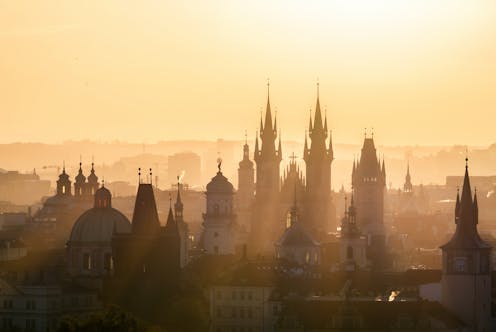The shadow of Raymond Chandler looms in Call Me Marlowe, an international tale seeking humanity in the darkness
- Written by Brigid Magner, Associate Professor in Literary Studies, RMIT University

Catherine de Saint Phalle lived alone for many years in the country in France, where she published five novels and toured with controversial author Michel Houellebecq.
She came to Melbourne in 2003, where she now works as a writer, literary translator and French tutor. To acclimatise herself to Australian life, she remembers she used to follow women in the street “just to catch whiffs of their conversation”.
On Brunswick Ground[1] (2015), the first novel she published in Australia, was triggered by the murder of Jill Meagher and the dramatic change of atmosphere she sensed in the local community. De Saint Phalle is interested in the ways individuals are socially connected to one another. As a character in On Brunswick Ground says: “We are all knitted together in a Brunswick sweater – like the knitting those women wrap around trunks and streetlights.”
Review: Call Me Marlowe – Catherine de Saint Phalle (Transit Lounge)

















